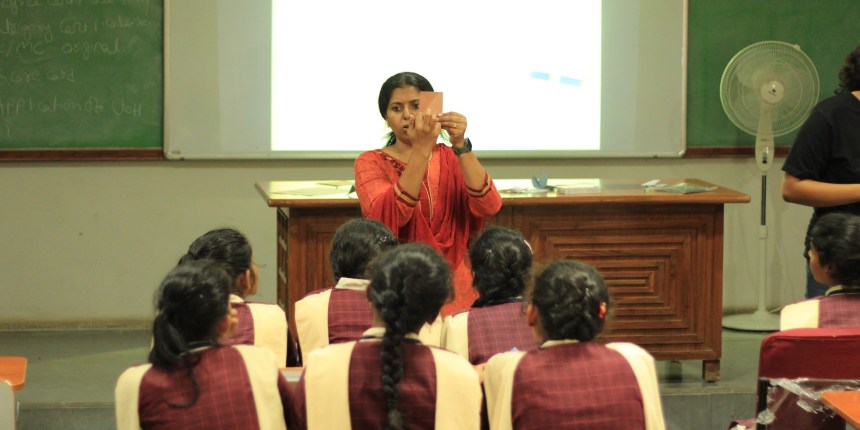Mothers cook, doctors are male: Southern textbooks more sexist than NCERT, ‘Hindi-belt’ ones, says study
Atul Krishna | September 16, 2024 | 03:29 PM IST | 3 mins read
A think-tank analysed state and NCERT textbooks. It found Gujarat to be the best and Karnataka the worst in terms of female representation.

NEW DELHI: An analysis by the think-tank Centre for Global Development has shown a high degree of gender bias in textbooks published by 10 school boards in India, including those by the National Council of Educational Research and Training (NCERT). The analysis also found that southern states did worse than states in the northern “Hindi-belt” despite having more progressive gender views.
The authors looked at 466 school textbooks published in the English language, including those by the NCERT and the states of Andhra Pradesh, Chhattisgarh, Gujarat, Karnataka, Kerala, Maharashtra, Mizoram, Punjab, Tamil Nadu, and Telangana. The analysis was first published in Ideas for India in August by the authors Lee Crawfurd, Theodore Mitchell, Radhika Nagesh, Christelle Saintis-Miller and Rory Todd.
It found that the words related to achievement, appearance, home, and work in these textbooks tend to have male-bias for positive outcomes.
The textbooks also used more male-gendered words compared to female-gendered ones. They also used examples that reaffirmed prevailing gender stereotypes. For instance, some textbooks link mothers to cooking and assume doctors are male.
Gender bias in NCERT books
The study found that school textbooks across India used more male-gendered words as compared to female ones. It said that despite a similar study in 2017, which flagged NCERT books as “riddled with gender stereotypes” prompting the education minister to call for “appropriate action”, the textbooks are yet to improve in this regard. NCERT textbooks have undergone multiple revisions since 2020 but these gaps remain.
“Our analysis of NCERT books published between 2020 and 2022 suggests that progress towards this goal has been limited. We find that just 34 percent of gendered words (such as ‘he’ or ‘she’) in NCERT books are female, and 66 percent are male,” the study said.
The findings correlated with a similar study done by the same authors in 2024 titled Sexist Textbooks, which found that “South Asia, and India in particular” is the worst region in the English-speaking world for stereotypes and low representation of women and girls in school books.
The current study also found that state textbooks were worse than NCERT textbooks in this regard.
Gujarat best, Karnataka worst
In textbooks published by state boards, the study found that Gujarat textbooks tend to have the highest female representation – close to 60% gendered words are female– while Karnataka textbooks had the worst representation with less than 20% gendered words being female.
“One state stands out as having particularly high female representation, namely, Gujarat. States in the south tend to do worse than states in the Hindi belt, despite higher female literacy and workforce participation,” the study said.
The study noted that there is “surprisingly little correlation” between gender-bias in textbooks and other measures of gender norms. The notable example being Gujarat having the best female-representation in textbooks despite having poor performance in other measures of gender norms such as workforce participation and female literacy.
Also, Mizoram which has one of the “highest scores on progressive gender attitudes” only has 22% female representation in school textbooks.
Gujarat, Chattisgarh, Punjab have the best female representation in textbooks, according to the analysis. Karnataka, Mizoram and Maharashtra have the worst.
The study said that although gender bias is “a crude measure” of the level of sexism in textbooks, the results show that there can be better representation in learning materials regardless of what the prevailing gender attitude in a region is.
It also said that Kerala is making “explicit efforts” to remove gender stereotypes from their books and that Karnataka has just updated their textbooks with its panel “claiming to have kept gender sensitivity in mind”. In 2023, the Congress-led Karnataka government had announced that it will frame new textbooks after the previous BJP-led government was accused of “saffronisation” of school textbooks.
Follow us for the latest education news on colleges and universities, admission, courses, exams, research, education policies, study abroad and more..
To get in touch, write to us at news@careers360.com.
Next Story
]No full-time Delhi DoE director since last year, educational reforms, teachers’ transfers stalled
Arrests of ex-education minister Manish Sisodia, Delhi CM Arvind Kejriwal, and election code cited as reasons for not appointing DoE director. Education is critical for AAP and Delhi Vidhan Sabha elections are in 2025.
Shradha Chettri